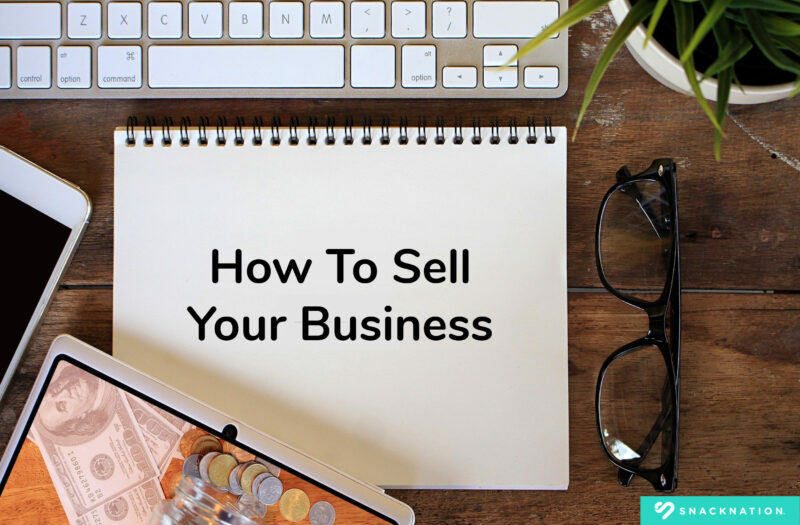The time has come, you’re ready to sell your business and move on to the next thing, whether that be retirement, a new project, or something entirely different.
While making the decision to sell your business is arguably the hardest part, once you do, there is still work to be done to get the best price when you sell.
Want to jump straight to the answer? The best company to sell your business is Business Exits!
To make things simpler for you, here are five steps you should follow to help you navigate the sale of your business and make the most of your time and money.
Step 1: Get Your Business Professionally Valued
As the backbone of your work and financial life, to you, your business may be priceless. But as an asset up for sale on the market, it has a market value, that is a value that a willing buyer will offer at a certain price.
Before you go and advertise the sale of your business it’s important to first get a professional valuation.
During this process, an expert in business sales will come in and look at everything related to your business, the financial performance as well as the industry, your business model, the companies you work with, products/services you sell, systems and processes you use, and even your team.
From there, they will come up with a number or range that you can use as a benchmark for selling your business. Whether you accept offers higher or lower than that number is ultimately up to you, but doing this first will make it much easier for you to evaluate the value your business may receive.
Why Work With a Professional?
At first glance, you may be wondering why it’s even necessary to bring in a professional to do this part of the job. The reason for this is mainly to be as thorough as possible. In the end, the number you will be negotiating over is called a “multiplier.” This number is used to calculate your business’ worth by multiplying it by your business’ annual cash flow.
In this sense, cash flow plays a considerable role in determining the worth of your business, but you can ask for more if you can get your multiplier up. You do this mostly by demonstrating that your business has potential for long-term growth, has a strong business model, has a team in place to run the business after the company is sold, has a repeatable sales system, and has good financial records.
An expert will be able to spot things you didn’t see and can help you get that multiplier higher. And since most small businesses have around 80 percent of their net worth in their business, getting this number to reflect the true value of your business is paramount to getting a sale price that matches its value.
Tip! Take this 60 second quiz to find out how much your business is worth!
Step 2: Get Your Financial Data in Order
In reality, steps one and two should be happening at the same time. As you’re contacting a professional business valuator, you should also be doing some extra legwork pulling together financial information from the past few years with your accountant.
Business buyers are not just going to take your word for it when it comes to the value of the business. Instead, they’re going to want to see some numbers. It’s therefore it is required to have great financial statements and tax returns from the past two/three years ready to go.
Take things a step further by also creating a list of the inventory you want to sell, as well any other intangible assets, such as intellectual property, you’re going to include with the sale of the company.
You could also take this opportunity to create documents that explain how your business works. Buyers want to know how they can step in and take advantage of your success right away. The clearer you can make this, the better the sale will go.
When doing all of this, pay special attention to how you organize and present this data. Compiling it in easy-to-read folders or other files will make it easy for prospective businesses to see the numbers for what they are and understand your business, which increases the chances they will want to make and complete an offer.
Step 3: Hire a Third-Party Business Broker
Something you should accept now is that the sale of a business is not a process you should navigate alone, if large private equity and public companies use a broker to sell their business then you should as well. A broker performs a lot of these tasks.
Usually, brokers will:
- Perform a business valuation of their own to compare with others you may have received
- Organize your due diligence to make sure the sale goes smoothly. Most sales fall apart because of this. A broker can save you time and money down the road.
- Maintain confidentiality throughout the process
- Connect you with interested buyers and market your business to the relevant audiences
- Facilitate sales by helping buyers
- Assist with negotiations
- Connect with funding and financing sources to fund the deal
- Work with all parties lawyers
- Negotiate favorable terms of the deal
Business Broker Options
Here are some options on the best business brokers to sell your business:
1 Bizbuysell.com – best for businesses with Under $500,000 in yearly profit
2 Businessexits.com – best for businesses with $500,000 to $10m in yearly profit
3 HL.com – best for businesses with over $10m in yearly profit
So how much will this cost you?
Pricing for a business broker usually depends on how much money your business makes. The general rule of thumb is this; the higher your revenue, the lower the broker’s commission fee. A business with up to $1 million in revenue will typically pay a 12-15% brokerage fee, whereas businesses with $25+ million revenue typically pay in the 3-5% commission range.
Step 4: Find Pre-Qualified Buyers
Say someone approaches you about buying your business. They seem very interested and have even made you an offer that’s in line with your asking price. You’re considering it. This feels promising.
However, what happens far too often is that this deal will fall through because the prospective buyer can’t get the money together to buy your business.
Therefore, when someone approaches you with an offer for your business, here are some questions you should ask right away:
1) Does the buyer have funding right now? If not, have they been pre-qualified to receive it?
2) Does the buyer have experience in the industry? Are they qualified to run the business? While this isn’t required it often makes for a smoother sale process.
3) When does the buyer want to act? Many potential buyers like to speak in vague terms, but those who are really motivated will know when they want to move forward. Prioritize these as they’re more likely to actually act.
If you decide to work with a business broker, they will help you with this step. But you should also be involved. Since no one knows your business as well as you do, you should be able to tell when someone is qualified to take it over. Remember, this is your livelihood. Don’t take it lightly.
Step 5: Finalize Legal, Contracts and Close the Deal
Once the deal terms have been agreed upon, all that’s left is to sign the contracts and close the deal. However, while this might sound like a straightforward last step, it’s often one of the messiest and most confusing and oftentimes when a deal falls over and doesn’t get completed.
The easiest way to handle this? Hire a business sales lawyer. Things are too important at this stage to leave it up to anyone but experts. Even the smallest language issue can lead to problems down the road.
Some of the many documents that come along with a business sale are:
- Purchase agreements
- Bill of sale
- Reps and warranties
- Indemnification clauses
- Asset list
- Noncompete clauses and agreements
- Guidelines for website use and domain name
- Transition time and effort (you may be asked to stay on for some time to help train the new owner and their team)
Don’t be surprised if the final contract is 40-100 pages long. But that’s why you bring in a professional.
Once they’re done, however, and everyone is satisfied with the paperwork, all that’s left is for you to sign your name and the business is sold.
Conclusion
In the end, selling a business is both straightforward and complex. The steps you have to follow are logical and easy, but the details within each one can make things messy and difficult. Take your time, don’t get too stressed, and hire the right professionals. That’s the secret to a successful and profitable business sale.













